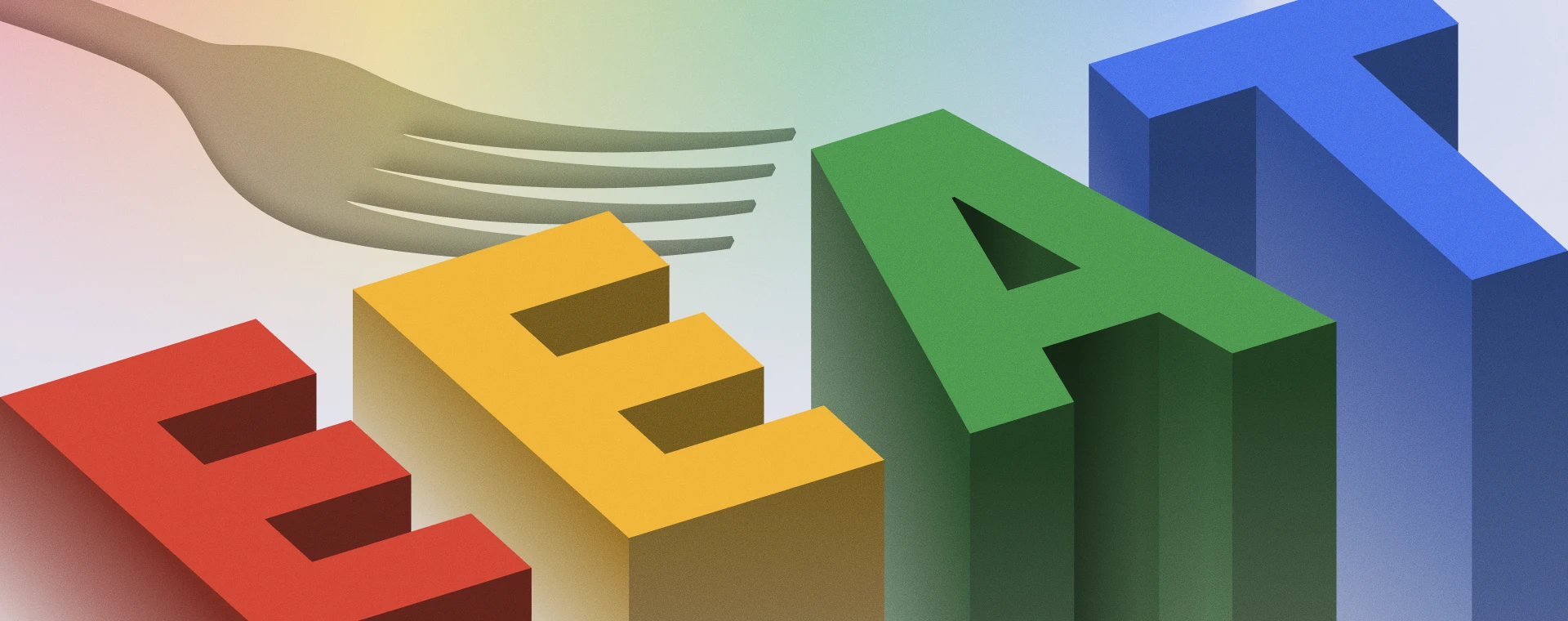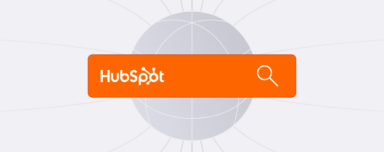Why E-E-A-T Still Matters in 2025
Your content is well-written, thoroughly researched, and packed with valuable information. So why is your website stuck on page three of Google? Chances are, you’re overlooking an essential ranking element: E-E-A-T
What Is Google E-E-A-T?
E-E-A-T stands for Experience, Expertise, Authoritativeness, and Trustworthiness. Think of it as Google’s way of asking: “Should people trust this content enough to make important decisions based on it?”
Before you roll your eyes at another Google acronym, understand that E-E-A-T isn’t some arbitrary ranking factor. It’s Google’s attempt to solve a real problem. The internet is flooded with misleading, dangerous, or just plain wrong information. E-E-A-T helps Google identify content that won’t mislead or harm its users.
Note: There’s no “E-E-A-T score” that Google assigns to your content. Instead, E-E-A-T is a set of guidelines that Google’s human quality raters use to evaluate search results. These evaluations then help train Google’s algorithms to recognize high-quality content automatically.
The Need for a Quality Control System
Google has one job, which is to help users find reliable information quickly. Every algorithm update, every new feature, every policy change serves this single purpose.
The problem? Anyone can publish anything online. Your cousin’s Facebook post about “miracle cures” sits next to peer-reviewed medical studies in search results. Google needed a way to separate credible information from potentially harmful nonsense.
That’s where E-E-A-T came in. It’s Google’s quality control system, designed to elevate content that demonstrates real knowledge and downrank content that could mislead or harm users.

The Four Pillars of E-E-A-T: Experience, Expertise, Authority and Trust
1. Experience
Google wants to see that content creators have real, first-hand experience with their topics.
What this looks like:
- A fitness blogger sharing before/after photos from their own transformation
- A restaurant reviewer including photos of dishes they actually ordered
- A tech reviewer showing hands-on testing of products they purchased
- A lawyer writing about cases they’ve actually handled
How to show experience:
- Include personal anecdotes and specific details that only come from real experience
- Share photos, screenshots, or other proof of your involvement
- Mention challenges you faced and how you overcame them
- Reference specific dates, locations, or circumstances from your experience
2. Expertise
Experience and expertise often overlap, but they’re different. Expertise is about demonstrating deep knowledge and skill in your subject area, whether that comes from formal education, professional experience, or years of dedicated study.
What Google looks for:
- Content that goes beyond surface-level information
- Accurate technical details and proper use of industry terminology
- References to current research, studies, or industry developments
- Demonstration of understanding complex concepts and their implications
How to demonstrate expertise:
- Include detailed author bios highlighting relevant qualifications
- Cite authoritative sources and recent research
- Explain complex topics in ways that show deep understanding
- Address common misconceptions or nuances that only experts would know
3. Authoritativeness
Google looks at whether other credible sources recognize you as an authority in your field.
Signs of authority Google recognizes:
- Backlinks from reputable websites in your industry
- Citations or mentions in mainstream media
- Guest posting opportunities on established platforms
- Speaking engagements or conference presentations
- Awards or recognition from industry organizations
Building authority takes time:
- Consistently publish high-quality content in your niche
- Engage with other experts in your field
- Seek opportunities to contribute to established publications
- Build relationships with journalists and industry influencers
- Participate in industry conferences and events
4. Trustworthiness
Of all four E-E-A-T components, trustworthiness matters most to Google. You can have experience, expertise, and authority, but if users can’t trust your content, Google won’t rank it highly.
What builds trustworthiness
- Transparency about who you are and your qualifications
- Clear contact information and about pages
- Accurate, fact-checked information
- Proper citations and source attribution
- Regular content updates to maintain accuracy
- Professional site experience and functionality
- Positive user reviews and testimonials
Recent Algorithm Updates & What It Means for E-E-A-T Content in 2025
Google’s 2025 algorithm updates have significantly tightened E-E-A-T requirements, making it harder for mediocre content to slip through the cracks. If your traffic has dropped recently or you’re struggling to rank new content, these changes might be why.
1. AI Content Gets the Microscope Treatment
While AI-created content isn’t automatically penalized, Google now easily identifies content that lacks human insight, personal experience, or original thinking. The search giant doesn’t prohibit AI content outright, but it emphasizes that all content (regardless of how it’s created) must be helpful, reliable, and people-first.
So it’s safe to say the days of lightly editing ChatGPT output and expecting it to rank are over. If you’re using AI tools, they need to be starting points, not endpoints.
AI can help with research and structure, but the insights, examples, and expertise need to be authentically human. AI content that meets Google’s quality standards can rank well, but most AI-generated content needs significant human oversight and editing to reach E-E-A-T standards.
2. The “Experience” Factor Is Make-or-Break
Experience now carries more weight than ever before. Google is aggressively favoring content that demonstrates real-world, firsthand knowledge. A travel blog written by someone who actually visited the destinations will now significantly outrank one written by someone who just researched online. Similarly, a product review from someone who bought and used the product beats one written from spec sheets, no matter how well-researched the latter might be.
3. Google Fights Back Against Content Recycling
Content that simply rewrites existing articles or rehashes the same information everyone else is sharing faces steeper ranking penalties. Google’s algorithm has become sophisticated at identifying truly original insights versus cleverly reworded existing content. You can’t just take the top 10 articles on a topic, combine their points, and expect to rank. You need to bring something genuinely new to the conversation, like original research, unique perspectives or fresh content that hasn’t really been covered yet.
4. Fresh Content Gets Priority Treatment
Google now rewards content updates more aggressively. Stale content, even if it was once authoritative, will always lose ground to fresher alternatives. Refreshing existing articles with new data, current examples, or updated insights can significantly boost rankings.
5. Global Expansion Means Higher Stakes
Google’s Helpful Content system now applies more broadly across languages and regions. If you operate internationally or create multilingual content, technical SEO elements like proper hreflang implementation have become critical for maintaining E-E-A-T compliance.
Some Industries Have Higher Quality Standards
E-E-A-T is especially critical for “Your Money or Your Life” (YMYL) content, or topics that could significantly impact someone’s health, financial security, safety, or overall well-being.
These include:
- Health and medical information
- Financial advice and investment guidance
- Legal information and advice
- Safety instructions and emergency procedures
- News about important current events
- Parenting and child safety information
- Information about pharmaceuticals and medical devices
If you create content in these areas, Google holds you to much higher E-E-A-T standards. A casual blog post about “natural remedies” will struggle to outrank content from established medical websites, regardless of how well-optimized it is for traditional SEO factors.

Quick Wins to Improve Your Content’s E-E-A-T
Start with Your Author Pages
Create detailed author bios that establish credibility. Include:
- Relevant education and certifications
- Professional experience in the field
- Links to previous work or publications
- Professional headshots and contact information
- Social media profiles showing expertise
Upgrade Your Content Quality
- Go deeper than your competitors: Don’t just rehash what everyone else is saying. Add unique insights, personal experiences, and expert analysis.
- Cite authoritative sources: Link to government websites, academic institutions, established news organizations, and recognized industry experts.
- Update content regularly: Keep content current and accurate, especially for rapidly changing topics.
- Show your work: Explain your methodology, share your reasoning, and be transparent about your process.
Build Your Site’s Credibility
- Create comprehensive about pages: Be transparent about who you are, what you do, and why you’re qualified to write about your topics.
- Add contact information: Make it easy for users to reach you with questions or concerns.
Include privacy policies and terms of service: Show that you take user privacy and legal compliance seriously. - Display testimonials and reviews: Let satisfied customers or readers speak to your credibility.
Earn Quality Backlinks
- Create linkable assets: Develop comprehensive guides, original research, or useful tools that others want to reference.
- Guest post strategically: Write for established publications in your industry to build authority and earn quality backlinks.
- Engage with your community: Participate in industry discussions, forums, and social media conversations.
What Measuring Success Actually Looks Like
Since there’s no E-E-A-T score to track, how do you know if your efforts are working?
Indicators of improving E-E-A-T:
- Increased organic traffic from competitive keywords
- Higher click-through rates from search results
- More backlinks from authoritative websites
- Better user engagement metrics (time on page, bounce rate)
- Positive mentions in industry publications or social media
- Growth in branded search queries
Questions to assess your content:
- Would you trust this content enough to make an important decision based on it?
- Is the author clearly identified and credentialed for this topic?
- Does the content provide unique value beyond what’s already available?
- Are all claims properly sourced and verifiable?
- Would industry experts endorse this content?
It’s Time To Stop Competing on Keywords Alone
Getting content to rank used to feel straightforward. You’d find the right keyword density, craft perfect meta descriptions, optimize your site speed, and call it done. It was a checklist-driven system that rewarded technical execution over genuine knowledge—and for years, that approach worked.
But Google has quietly engineered something much more significant with E-E-A-T. They’ve restored a fundamental principle that predates the internet itself: expertise should matter more than gaming the system. The world’s most sophisticated algorithm now recognizes and rewards authentic authority and trustworthiness.
This shift means businesses can no longer rely on technical tricks alone. Success now requires the kind of deep knowledge and genuine credibility that takes time to build. That’s where Timmermann Group comes in. We specialize in helping businesses make the transition from optimization to authority.
Build Authority That Search Engines and Users Trust
Ranking today isn’t about checking SEO boxes. It’s about proving real experience, expertise, authority, and trust. If your content isn’t demonstrating why you deserve to rank — through credible authorship, original insights, and strategic positioning — Google will reward someone who does. Schedule a 30-minute consultation with Timmermann Group, and let’s build content that earns trust, authority, and long-term search visibility.







